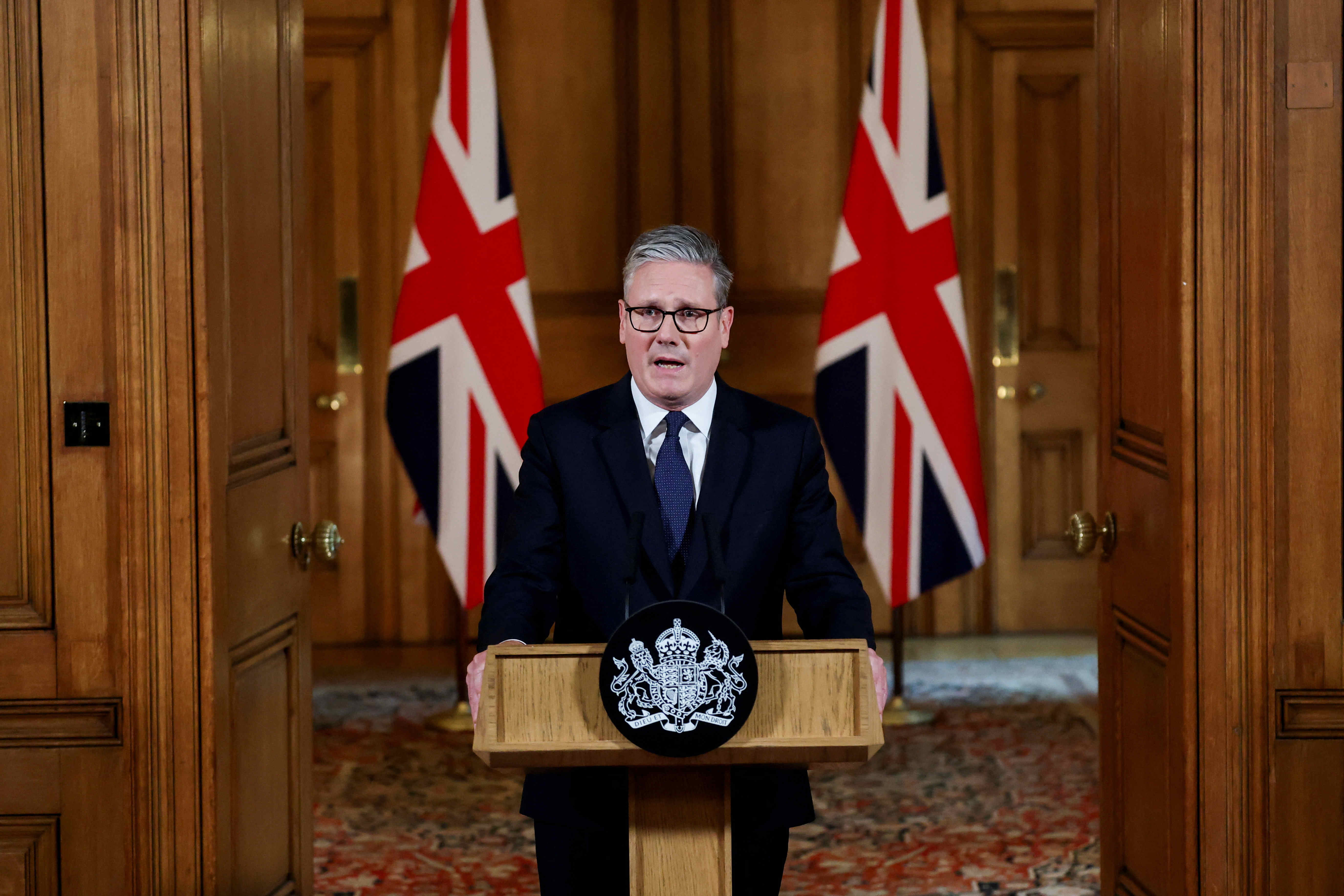Keir Starmer’s declaration that Britain will recognise a Palestinian state unless Israel takes ‘substantive steps’ to end the war in Gaza is, on its face, a symbolic diplomatic gesture. Yet symbols, particularly in international affairs, carry weight. And this one is a blow to Israel, both politically and strategically. The question is not whether this decision is consequential, but how and for whom.
If recognition is contingent on Israel achieving a ceasefire, then Hamas has every reason to prolong the conflict
Framed as a humanitarian imperative, the British ultimatum appears, on closer inspection, to rest on an unsettling inversion of logic. The precondition for recognition of a Palestinian state is not reform or renunciation of violence by the Palestinian leadership, nor a credible commitment to peaceful coexistence, good governance, or democratic legitimacy. Rather, it is Israel’s conduct alone, its willingness to agree to a ceasefire, to deliver aid, and to move toward a long-term peace process, that is made the determining factor. Starmer’s conditions should of course mention Hamas’s responsibility, and that of the Palestinian Authority with its decades-long record of corruption, incitement, and rejectionism, for the horrific war.
This is the peculiarity at the heart of Starmer’s announcement. Recognition of statehood is offered as a punitive measure. It is effectively, a sanction imposed on Israel for continuing a war it did not start, and whose most basic defensive aims are not yet fulfilled. The attack of 7 October, in which Hamas-led forces massacred, raped, and abducted Israeli civilians in the deadliest day of anti-Jewish violence since the Holocaust, appears in this logic not as a disqualifying atrocity but as the trigger for Western diplomatic reward and a capitulation to the demands of the worst parts of Starmer’s domestic pressures.
That reward, moreover, creates perverse incentives. If recognition is contingent on Israel achieving a ceasefire, then Hamas has every reason to prolong the conflict rather than agree to the proposals already agreed on by Israel. In fact, in recent rounds of negotiations, it has been Hamas, not Israel, that has rejected US- and Egypt-brokered proposals for truce. Britain’s move risks reinforcing the calculus that terrorism and intransigence are politically productive strategies. Why compromise when war advances your diplomatic standing? If Hamas holds out until September Britain will reward them recognition. If they agree to a ceasefire, then that recognition will most likely fall away.
The broader implication is chilling: terrorism works. What the Palestinians could not gain from Oslo, Camp David, or the Annapolis process, they now edge closer to achieving by Hamas-led butchery. And the lesson will not be lost on other Islamic terrorist groups. If the United Kingdom, long a proponent of negotiated two-state coexistence, can shift towards unilateral recognition without requiring any substantive improvement in Palestinian behaviour, then the deterrent against future atrocities weakens. The incentive structure is reversed. Violence is vindicated, and increased violence can tip the balance in their favour.
Indeed, Starmer’s conditions underscore a deeper asymmetry. While Israel is asked to prove its readiness for peace by making strategic concessions, the Palestinians are exempt from analogous expectations. There is no requirement to fully dismantle all terrorist infrastructure, to end incitement, to hold elections, or to stop paying stipends to the families of terrorist killers as a reward and incentive. The Palestinian Authority, far from being a credible alternative to Hamas, continues to glorify violence and undermine coexistence. Just who does Starmer think will run this state and what policies will they take towards Israel, Jews, deradicalisation, and peace?
What sort of state would such leadership produce? The most likely answer is a new Islamic terror state, making Britain’s decision not a gesture of peace but a leap into further delusion. It bypasses the very preconditions that any serious two-state solution must entail: mutual recognition, renunciation of violence, and the emergence of stable, responsible governance. Recognition without those anchors risks institutionalising the very dynamics that have kept the conflict alive.
None of this is to deny the suffering in Gaza. Civilian suffering is immense, and better aid solutions are important. But conflating humanitarian concern with state recognition is both analytically unsound and strategically counterproductive.
In truth, Britain’s posture is less an act of moral courage than a transparent diplomatic sleight of hand. It pretends to reward Palestinian aspirations, but in fact punishes Israeli resilience. It offers a vision of peace, while reinforcing the machinery of perpetual war. On 7 October, Israel learned that its enemies are prepared to cross every moral line. Starmer’s proposal risks confirming that lesson with a dangerous corollary: such depravity not only pays, it persuades.
Hamas, in other words, sought to invert the moral foundations of Israel’s legitimacy by orchestrating an atrocity so extreme that it would provoke a devastating retaliation — one whose humanitarian toll, cynically manufactured and then weaponised through propaganda, could be falsely presented to the world as a mirror image of the Holocaust, thereby compelling the very same nations that once affirmed Israel’s right to exist to now affirm the Palestinian claim to statehood. It seems to have worked on many
History will judge whether this gesture was, in the end, merely symbolic. But it already sends a signal that cannot be unheard. And that signal, to Israel and the world, is not one of peace, but of peril.









Comments